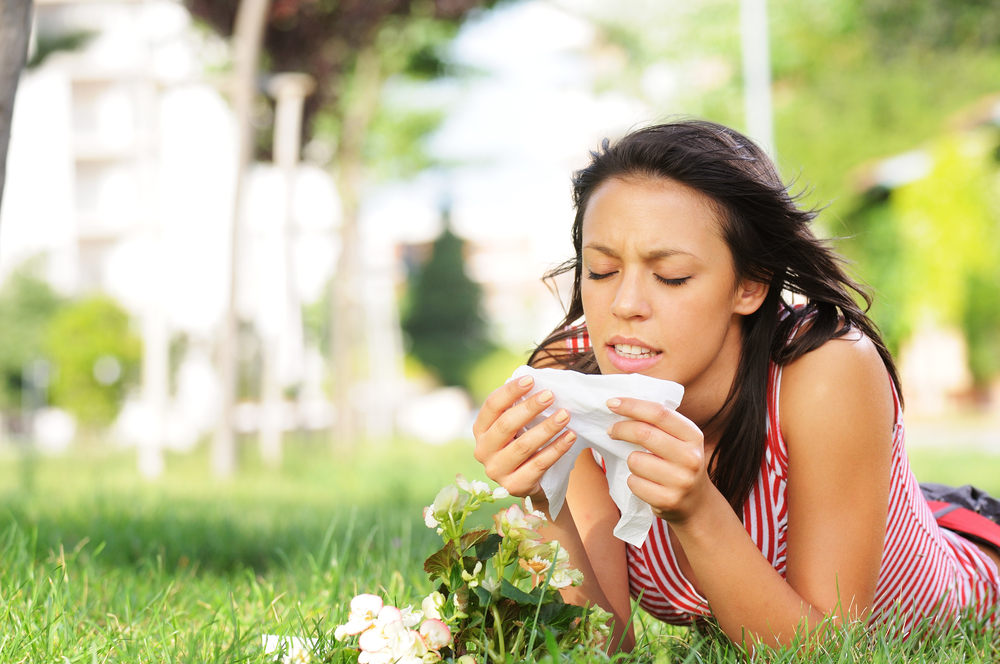Most Allergy Sufferers Not Getting Relief from Over-the-Counter Meds

Many hay fever sufferers are turning to over-the-counter allergy medications to relieve their symptoms, but they may not be happy with the results they are getting from these medicines, a new study reveals.
By comparison, fewer people treat their seasonal allergies with prescription medications, the researchers found. However, these patients report slightly higher levels of satisfaction with these medications, compared with users of over-the-counter allergy products, according to the findings, which will be presented Monday (Nov. 9) at the American College of Allergy, Asthma and Immunology annual meeting in San Antonio.
The researchers found that 51 percent of adults who took a prescription allergy pill said they were very or extremely satisfied with the drug's effectiveness, while only 33 percent of adults who take an allergy pill sold over-the-counter reported this same degree of satisfaction with their treatment. Despite not being thrilled with the results, 62 percent of the adults surveyed said they use over-the-counter allergy products to manage their symptoms.
It's not surprising that so many people take over-the-counter allergy medications, and the reason has a lot to do with the cost, said study author Dr. Eli Meltzer, a senior associate at Allergy & Asthma Medical Group & Research Center in San Diego.
More and more allergy products are being approved by the U.S. Food and Drug Administration for sale over-the-counter, Meltzer said. Health plans may also be limiting people's access to prescription allergy medications until they have tried over-the-counter medications first, he said. [9 Myths About Seasonal Allergies]
Controlling allergies
For the study, the researchers conducted a nationwide survey in March of 500 adults and 501 children ages 12 to 17, all of whom had been diagnosed by a doctor with allergic rhinitis, also known as hay fever.
Sign up for the Live Science daily newsletter now
Get the world’s most fascinating discoveries delivered straight to your inbox.
Most participants (80 percent) said they had moderate to severe symptoms of seasonal allergies in the spring, summer and fall. Both adults and children were more likely to take an over-the-counter pill for their allergies. The next most popular product was prescription nasal sprays, the study found.
Adults typically saw their primary care doctor for allergy treatment, and children usually saw their pediatricians for allergy care. The study also found that only 14 percent of adults and 24 percent of children saw an allergy specialist for treatment.
Seasonal allergies are often underdiagnosed, undertreated and undercontrolled, Meltzer told Live Science. It's not unusual for people to have allergy symptoms and just tolerate them, and do nothing about them, he said.
People may self-treat their seasonal allergies without consulting their doctor, or choose a product they saw advertised on TV or that was recommended by a friend, Meltzer said. But people do not need to suffer with allergy symptoms that might affect their sleep, work, social lives and quality of life, Meltzer said.
There are ways for most hay fever sufferers to control their symptoms, but patients have to be properly treated, Meltzer said. Medications can ease symptoms, or allergy shots, also known as immunotherapy, can provide long-term relief, he said.
Over-the-counter products may help, but if symptoms are still bothersome, an allergy specialist may be able to help by managing and monitoring treatment, Meltzer said.
Editor’s note: A correction was made in this story on Nov. 9. The name of the organization that held the meeting is the American College of Allergy, Asthma and Immunology (not the American Academy of Allergy, Asthma and Immunology).
Follow Live Science @livescience, Facebook & Google+. Originally published on Live Science.
Cari Nierenberg has been writing about health and wellness topics for online news outlets and print publications for more than two decades. Her work has been published by Live Science, The Washington Post, WebMD, Scientific American, among others. She has a Bachelor of Science degree in nutrition from Cornell University and a Master of Science degree in Nutrition and Communication from Boston University.










